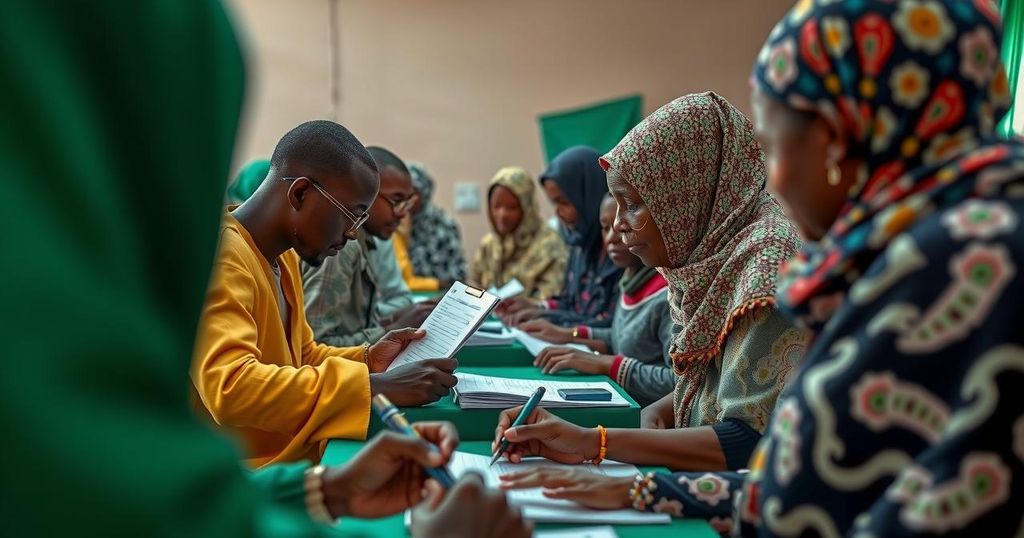Politics
AFRICA, ALLAH, DEMOCRACY, ETHIOPIA, FAISAL ALI WARABE, GOVERNANCE, GULF OF ADEN, IRRO, JUSTICE AND DEVELOPMENT PARTY, KULMIYE, MUSE BIHI ABDI, MUSE HASSAN YUSUF, NEC, PEACE, UNITY AND DEVELOPMENT PARTY, REGIONAL COOPERATION, SECURITY, SI, SOMALIA, SOMALILAND, SOMALILAND NATIONAL ELECTORAL COMMISSION, SOMALILAND POLICE FORCE, UCID, VOA SOMALI, WADDANI, WADDANI PARTY
Fatima Khan
0 Comments
Peaceful Presidential Elections Held in Somaliland Amid Tensions with Somalia
Somaliland conducted presidential elections smoothly, with over 1 million voters registered. Vote counting is underway, with results due by November 21. Candidates focused on strengthening democracy and economic growth amidst rising tensions with Somalia over Ethiopia’s territorial agreement with Somaliland.
The presidential election in Somaliland concluded smoothly, with polls closing at 6 p.m. local time. The Somaliland National Electoral Commission (NEC) reported active participation from over 1 million registered voters across roughly 2,000 polling stations. Following the closure, vote counting commenced, with NEC Chairman Muse Hassan Yusuf indicating that results might be announced by November 21, after addressing some minor technical issues reported during voting. General Mohamed Adan Saqadhi of the Somaliland Police noted that the election was free of incidents, ensuring a peaceful process throughout the region. Three presidential candidates campaigned for the position: the incumbent, Muse Bihi Abdi of the Kulmiye party, Abdirahman Mohamed Abdullahi from the Waddani party, and Faisal Ali Warabe of the UCID party. Each candidate promised commitments to strengthen democracy, promote economic growth, and pursue international recognition for Somaliland, which has sought acknowledgment since its declaration of independence in 1991. Despite not being internationally recognized, Somaliland operates a functional government with democratic power transitions. The elections occurred amid geopolitical tensions involving a controversial Ethiopian agreement granting Ethiopia access to Somaliland’s coastline in exchange for potential recognition. Somalia views this agreement as a violation of its sovereignty, leading to strained diplomatic relations, including the expulsion of Ethiopian diplomats. Recent talks mediated by Turkey aimed to resolve these tensions but have yet to produce a breakthrough.
Somaliland, a self-declared independent region of Somalia, has held four presidential elections since its declaration of independence in 1991. Despite its quest for international recognition, the territory operates independently with established governance and economic systems. The tensions with Somalia stem from Ethiopia’s engagement with Somaliland, particularly regarding territorial agreements, raising concerns over national sovereignty and regional stability within the broader context of the Horn of Africa.
The recent presidential elections in Somaliland were conducted peacefully, with a high voter turnout and minor technical issues promptly resolved. The NEC is expected to announce the election results by November 21. The elections were marked by commitments from candidates to economic and democratic improvements, all set against a backdrop of heightened tensions involving Somalia, Ethiopia, and the contentious geopolitical landscape. As Somaliland pursues its status, the implications of these political maneuvers warrant ongoing attention.
Original Source: www.voanews.com




Post Comment